Patrick Taillandier
MIAT INRA
The Kalai-Smorodinski solution for many-objective Bayesian optimization
Feb 18, 2019

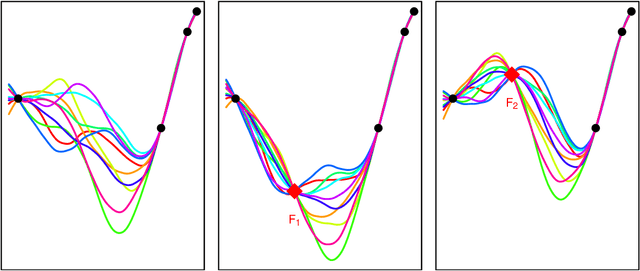

Abstract:An ongoing aim of research in multiobjective Bayesian optimization is to extend its applicability to a large number of objectives. While coping with a limited budget of evaluations, recovering the set of optimal compromise solutions generally requires numerous observations and is less interpretable since this set tends to grow larger with the number of objectives. We thus propose to focus on a specific solution originating from game theory, the Kalai-Smorodinsky solution, which possesses attractive properties. In particular, it ensures equal marginal gains over all objectives. We further make it insensitive to a monotonic transformation of the objectives by considering the objectives in the copula space. A novel tailored algorithm is proposed to search for the solution, in the form of a Bayesian optimization algorithm: sequential sampling decisions are made based on acquisition functions that derive from an instrumental Gaussian process prior. Our approach is tested on three problems with respectively four, six, and ten objectives. The method is available in the package GPGame available on CRAN at https://cran.r-project.org/package=GPGame.
Knowledge revision in systems based on an informed tree search strategy : application to cartographic generalisation
Apr 23, 2012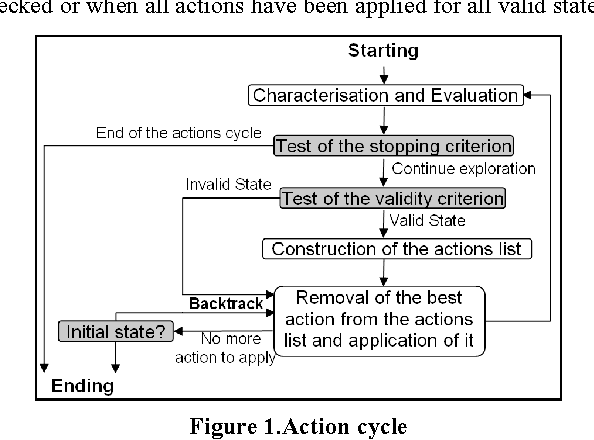
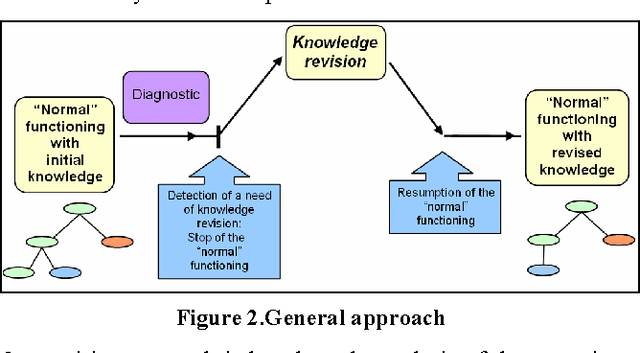
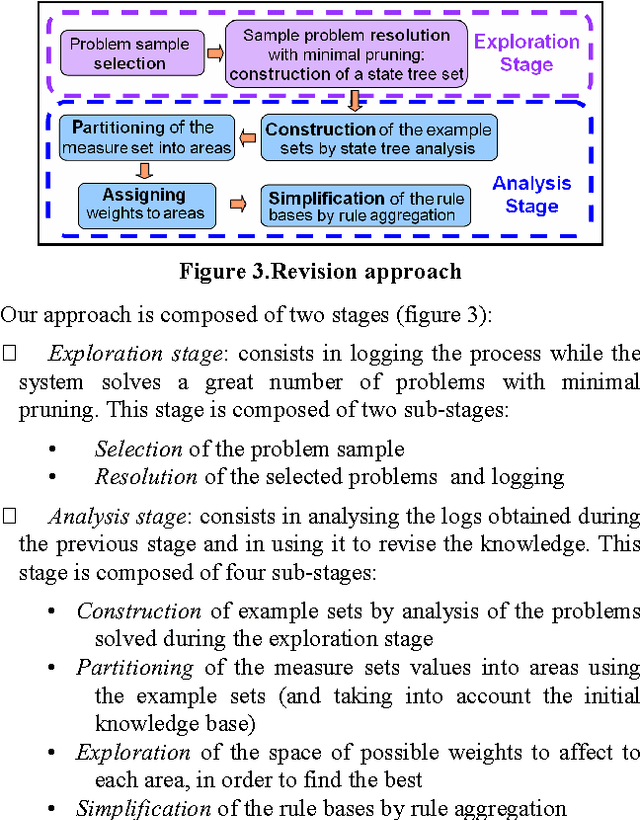
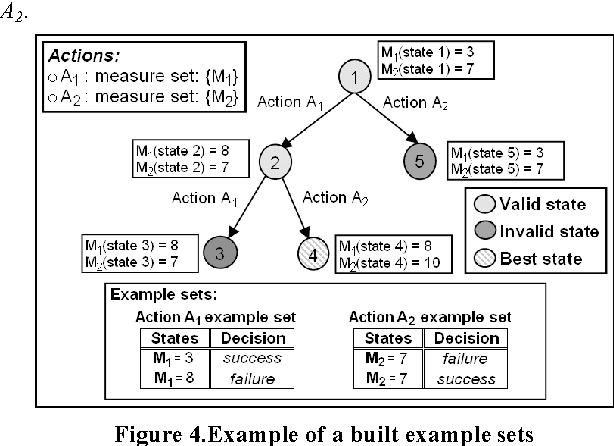
Abstract:Many real world problems can be expressed as optimisation problems. Solving this kind of problems means to find, among all possible solutions, the one that maximises an evaluation function. One approach to solve this kind of problem is to use an informed search strategy. The principle of this kind of strategy is to use problem-specific knowledge beyond the definition of the problem itself to find solutions more efficiently than with an uninformed strategy. This kind of strategy demands to define problem-specific knowledge (heuristics). The efficiency and the effectiveness of systems based on it directly depend on the used knowledge quality. Unfortunately, acquiring and maintaining such knowledge can be fastidious. The objective of the work presented in this paper is to propose an automatic knowledge revision approach for systems based on an informed tree search strategy. Our approach consists in analysing the system execution logs and revising knowledge based on these logs by modelling the revision problem as a knowledge space exploration problem. We present an experiment we carried out in an application domain where informed search strategies are often used: cartographic generalisation.
Objective Function Designing Led by User Preferences Acquisition
Apr 23, 2012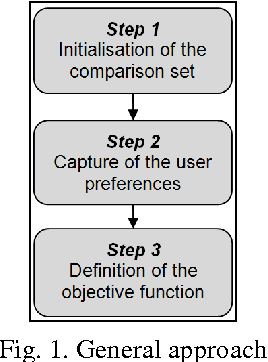

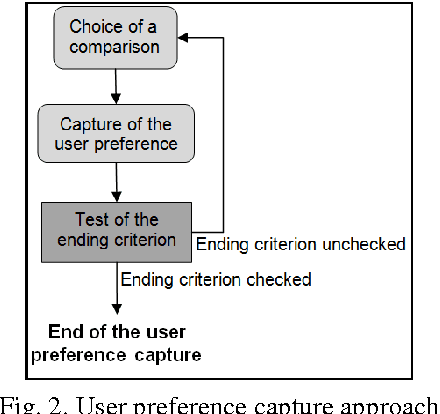
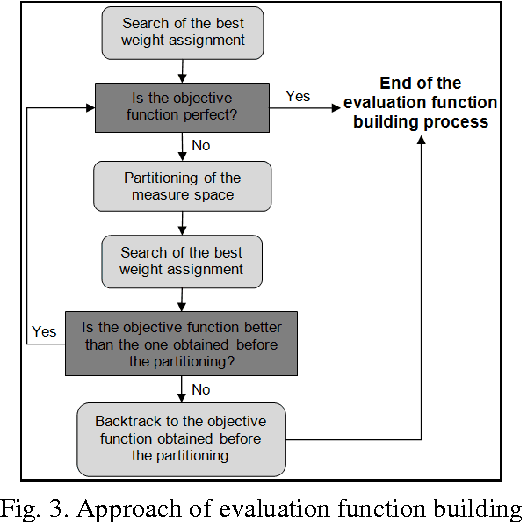
Abstract:Many real world problems can be defined as optimisation problems in which the aim is to maximise an objective function. The quality of obtained solution is directly linked to the pertinence of the used objective function. However, designing such function, which has to translate the user needs, is usually fastidious. In this paper, a method to help user objective functions designing is proposed. Our approach, which is highly interactive, is based on man machine dialogue and more particularly on the comparison of problem instance solutions by the user. We propose an experiment in the domain of cartographic generalisation that shows promising results.
Using Belief Theory to Diagnose Control Knowledge Quality. Application to cartographic generalisation
Apr 23, 2012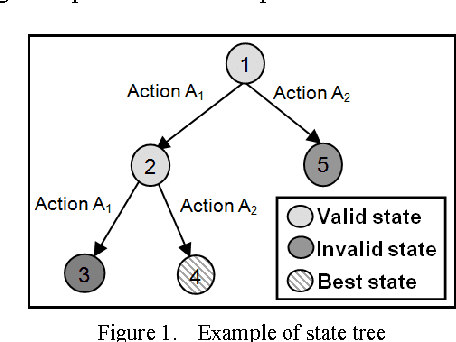
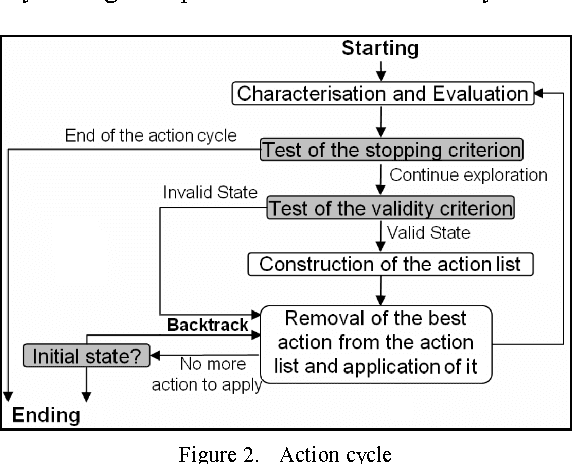
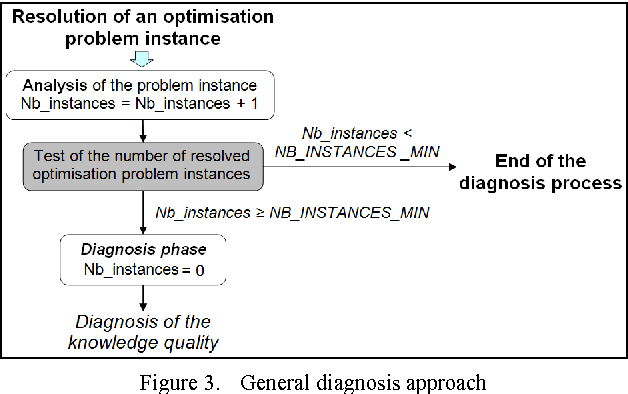
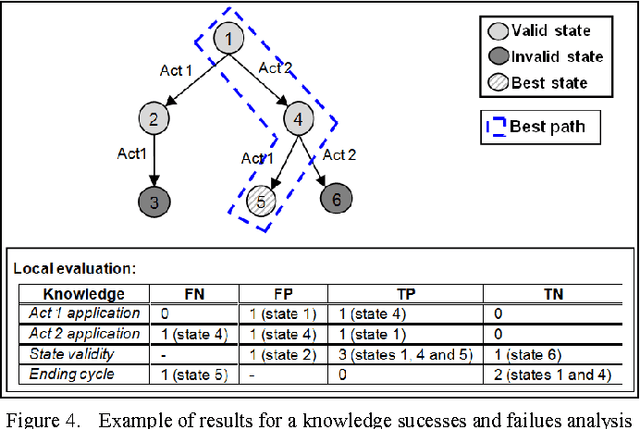
Abstract:Both humans and artificial systems frequently use trial and error methods to problem solving. In order to be effective, this type of strategy implies having high quality control knowledge to guide the quest for the optimal solution. Unfortunately, this control knowledge is rarely perfect. Moreover, in artificial systems-as in humans-self-evaluation of one's own knowledge is often difficult. Yet, this self-evaluation can be very useful to manage knowledge and to determine when to revise it. The objective of our work is to propose an automated approach to evaluate the quality of control knowledge in artificial systems based on a specific trial and error strategy, namely the informed tree search strategy. Our revision approach consists in analysing the system's execution logs, and in using the belief theory to evaluate the global quality of the knowledge. We present a real-world industrial application in the form of an experiment using this approach in the domain of cartographic generalisation. Thus far, the results of using our approach have been encouraging.
Automatic Sampling of Geographic objects
Apr 20, 2012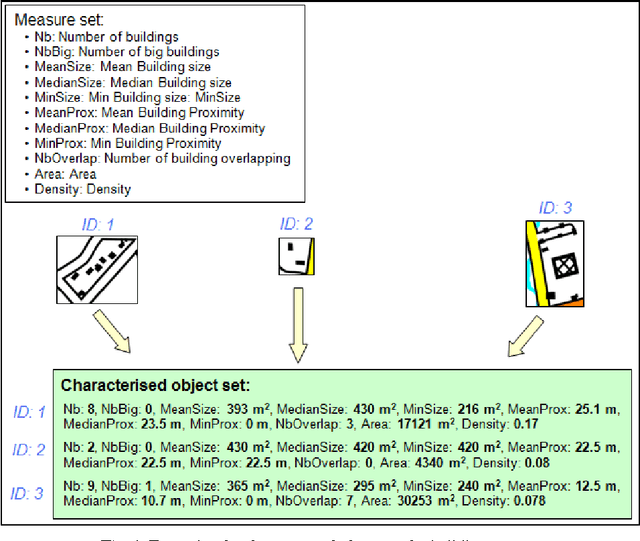
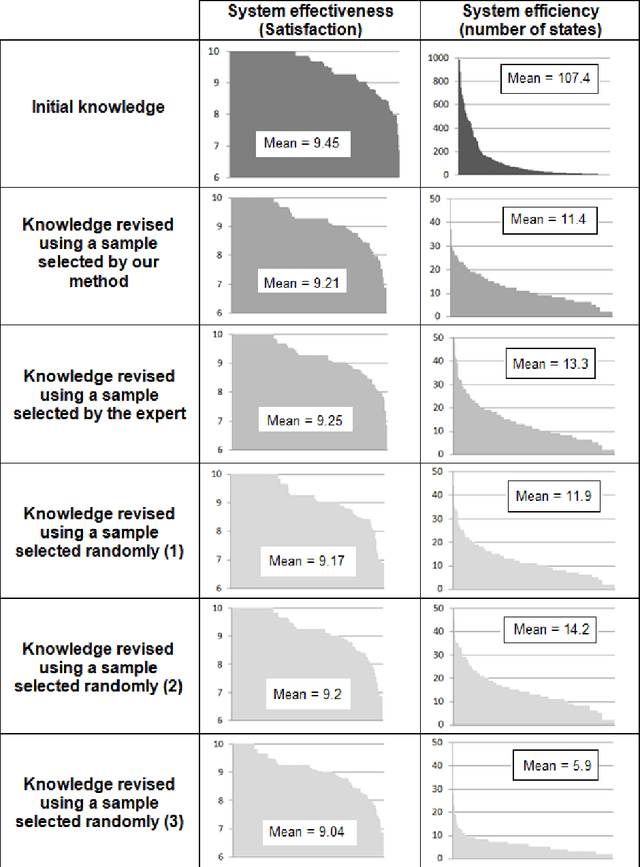
Abstract:Today, one's disposes of large datasets composed of thousands of geographic objects. However, for many processes, which require the appraisal of an expert or much computational time, only a small part of these objects can be taken into account. In this context, robust sampling methods become necessary. In this paper, we propose a sampling method based on clustering techniques. Our method consists in dividing the objects in clusters, then in selecting in each cluster, the most representative objects. A case-study in the context of a process dedicated to knowledge revision for geographic data generalisation is presented. This case-study shows that our method allows to select relevant samples of objects.
Designing generalisation evaluation function through human-machine dialogue
Apr 19, 2012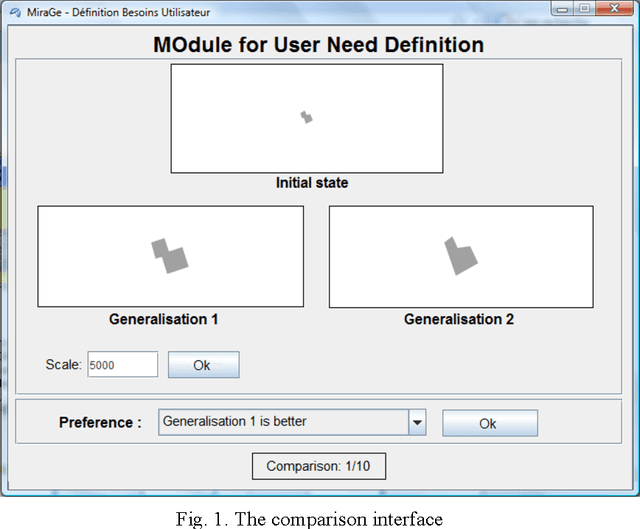

Abstract:Automated generalisation has known important improvements these last few years. However, an issue that still deserves more study concerns the automatic evaluation of generalised data. Indeed, many automated generalisation systems require the utilisation of an evaluation function to automatically assess generalisation outcomes. In this paper, we propose a new approach dedicated to the design of such a function. This approach allows an imperfectly defined evaluation function to be revised through a man-machine dialogue. The user gives its preferences to the system by comparing generalisation outcomes. Machine Learning techniques are then used to improve the evaluation function. An experiment carried out on buildings shows that our approach significantly improves generalisation evaluation functions defined by users.
Supervised feature evaluation by consistency analysis: application to measure sets used to characterise geographic objects
Apr 19, 2012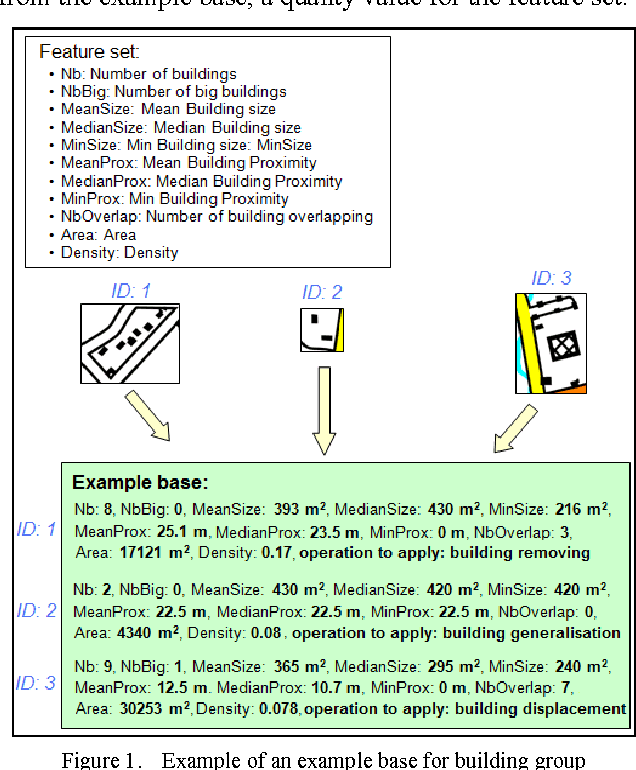
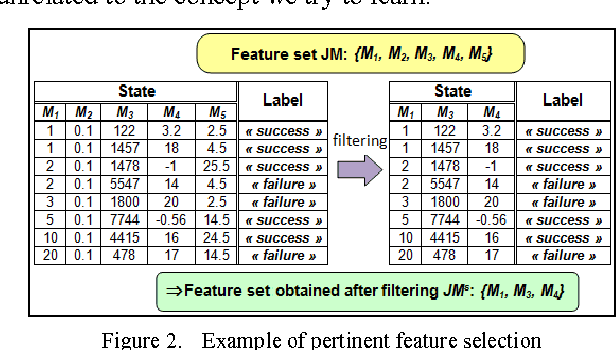
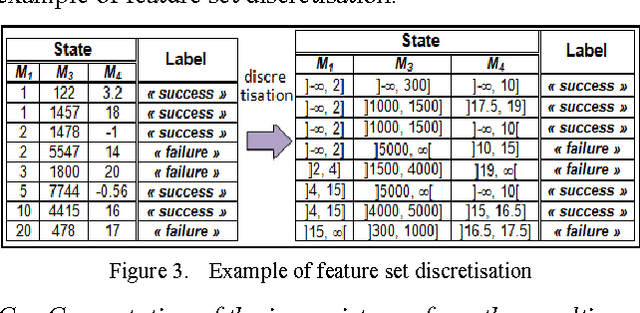
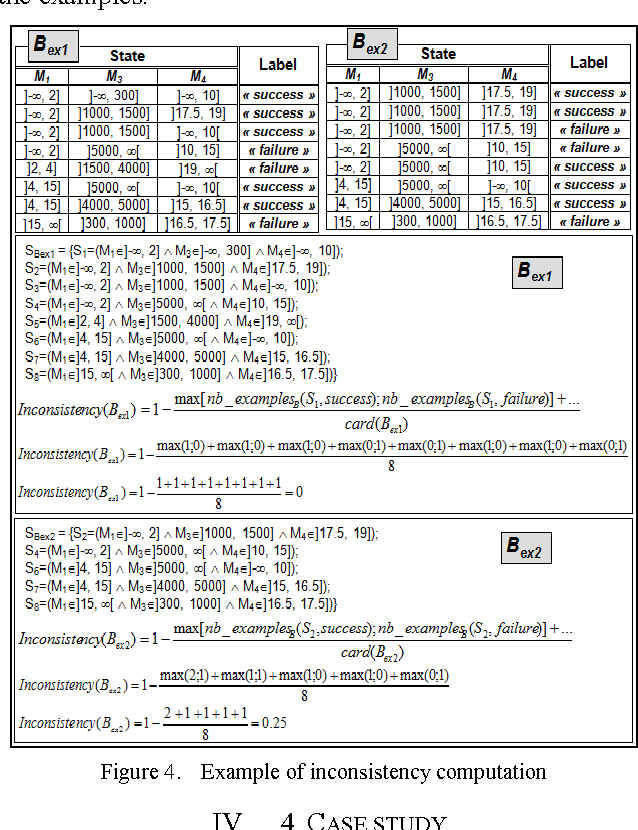
Abstract:Nowadays, supervised learning is commonly used in many domains. Indeed, many works propose to learn new knowledge from examples that translate the expected behaviour of the considered system. A key issue of supervised learning concerns the description language used to represent the examples. In this paper, we propose a method to evaluate the feature set used to describe them. Our method is based on the computation of the consistency of the example base. We carried out a case study in the domain of geomatic in order to evaluate the sets of measures used to characterise geographic objects. The case study shows that our method allows to give relevant evaluations of measure sets.
 Add to Chrome
Add to Chrome Add to Firefox
Add to Firefox Add to Edge
Add to Edge